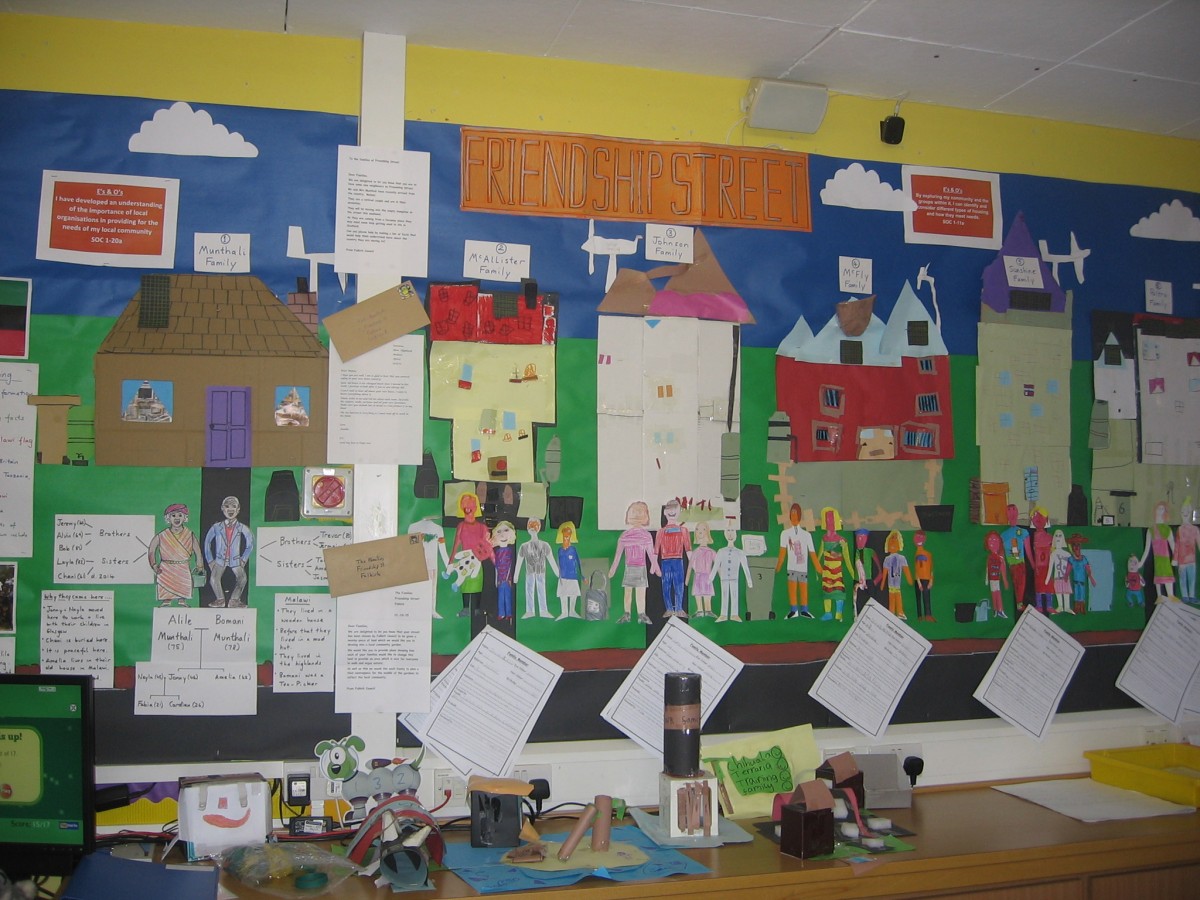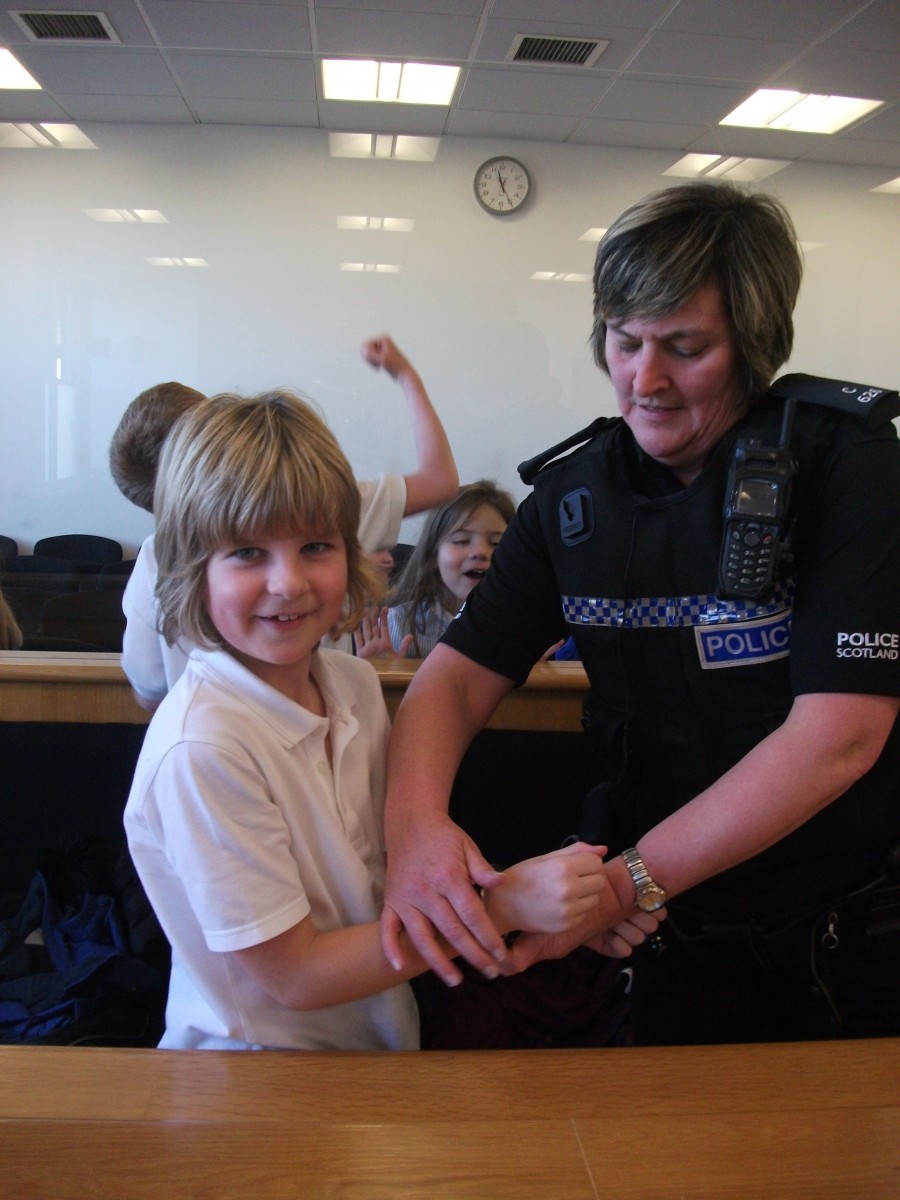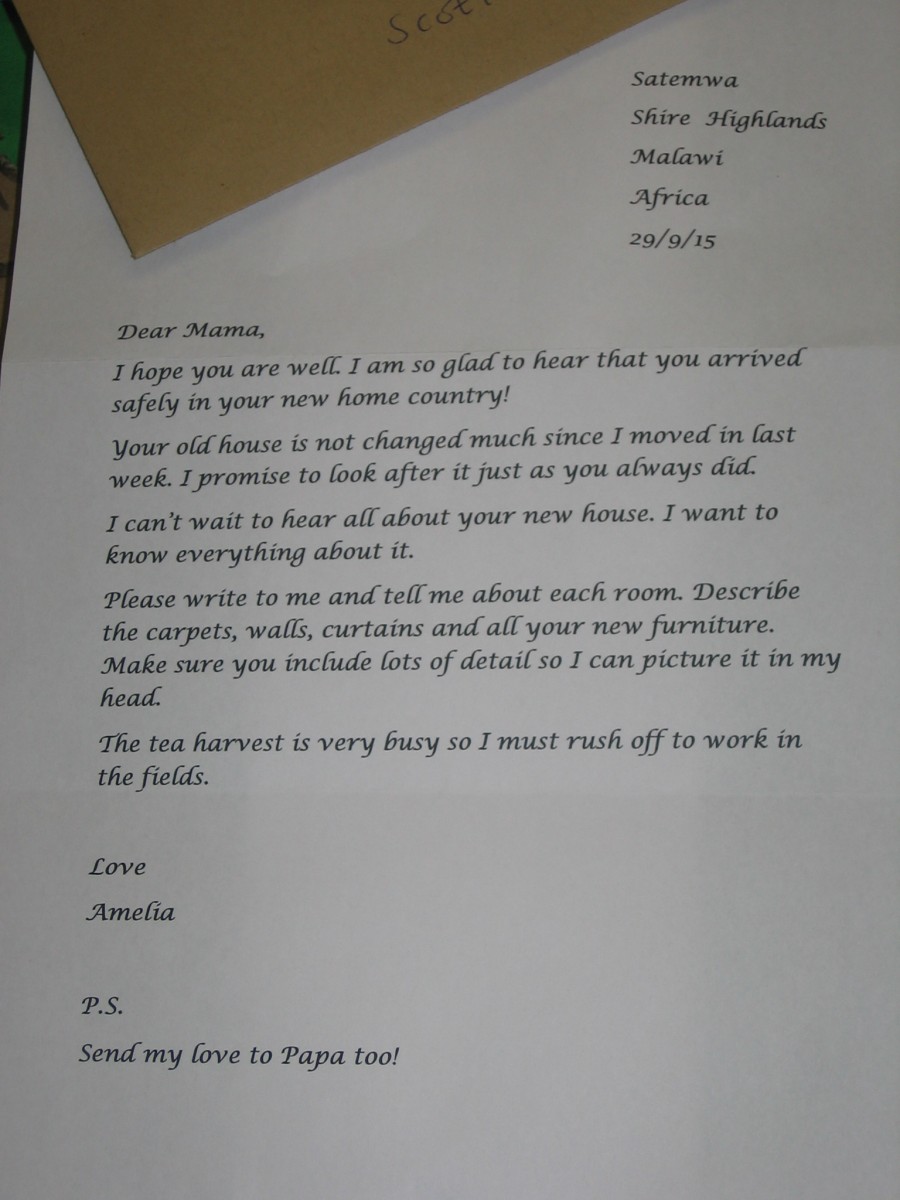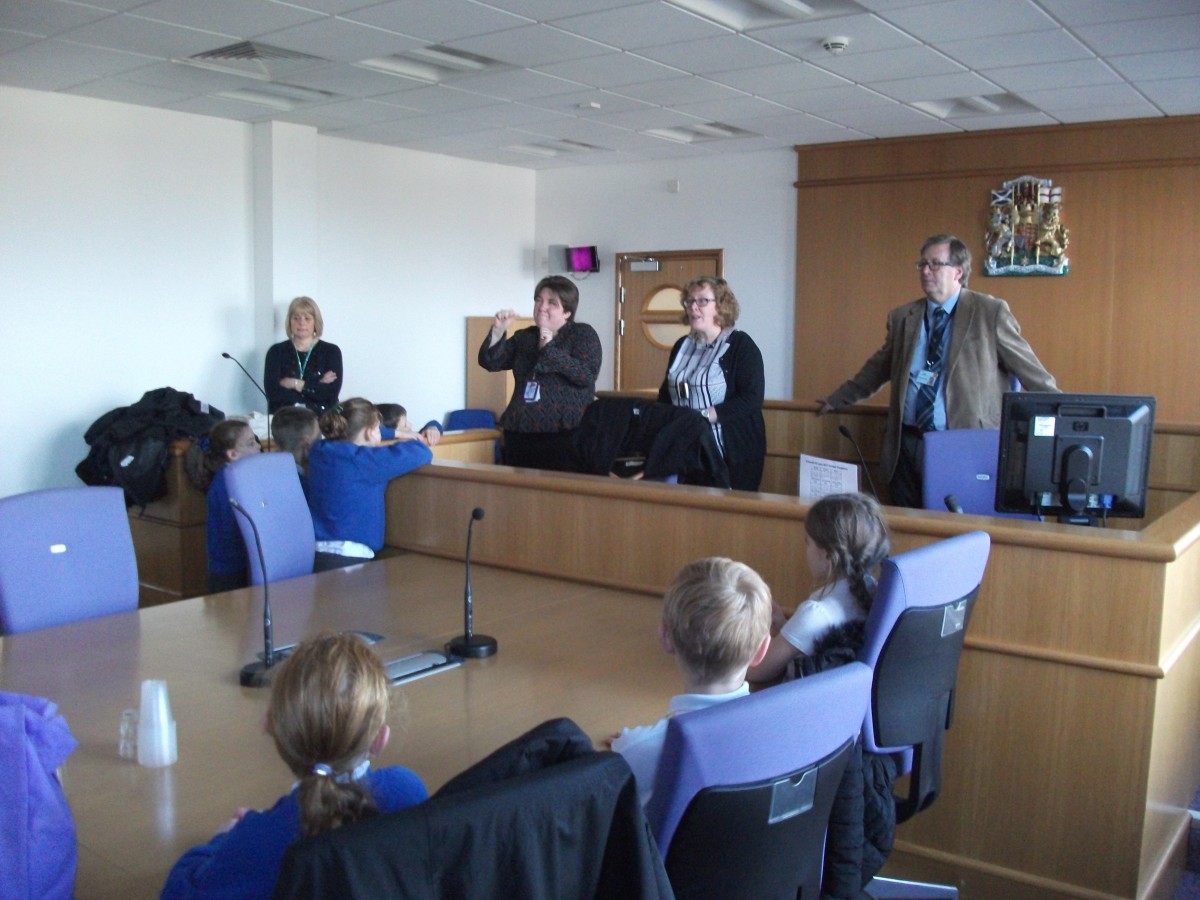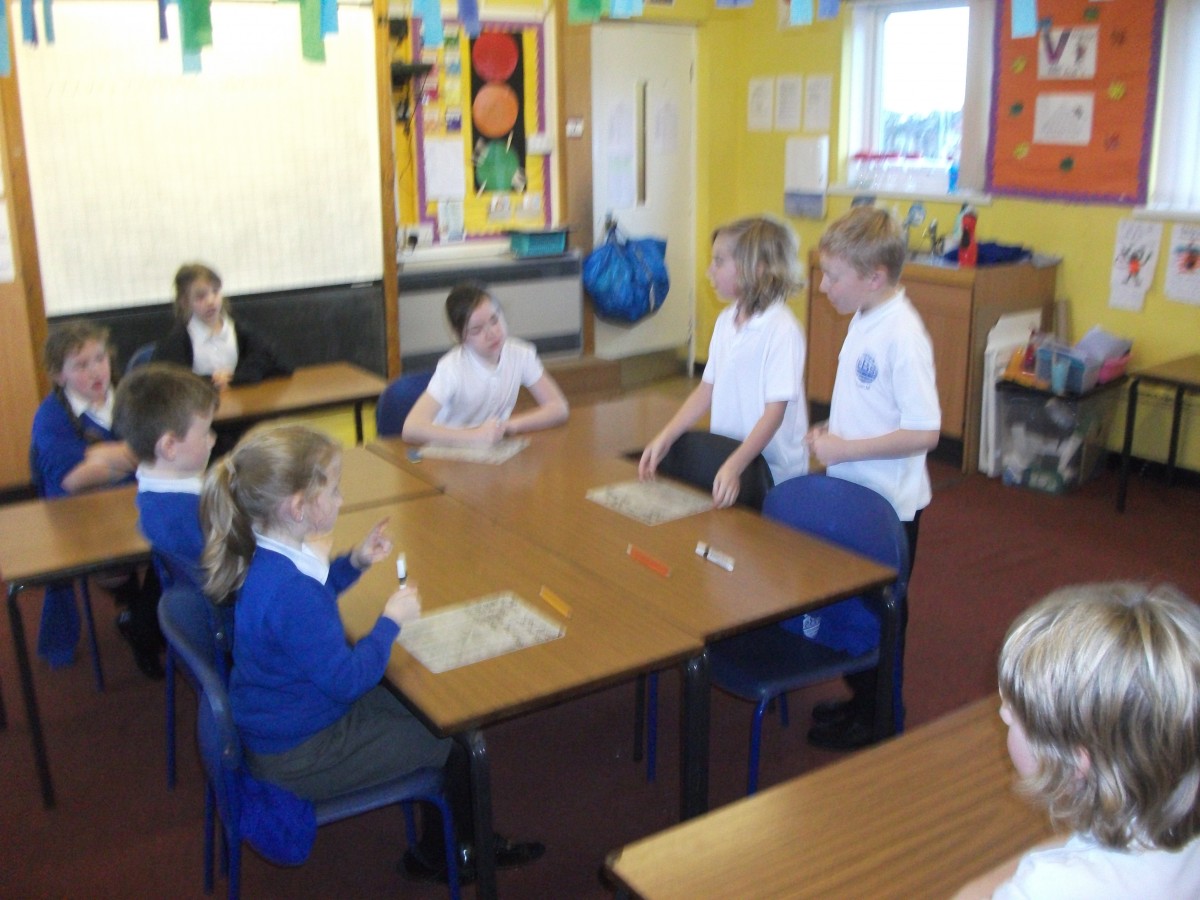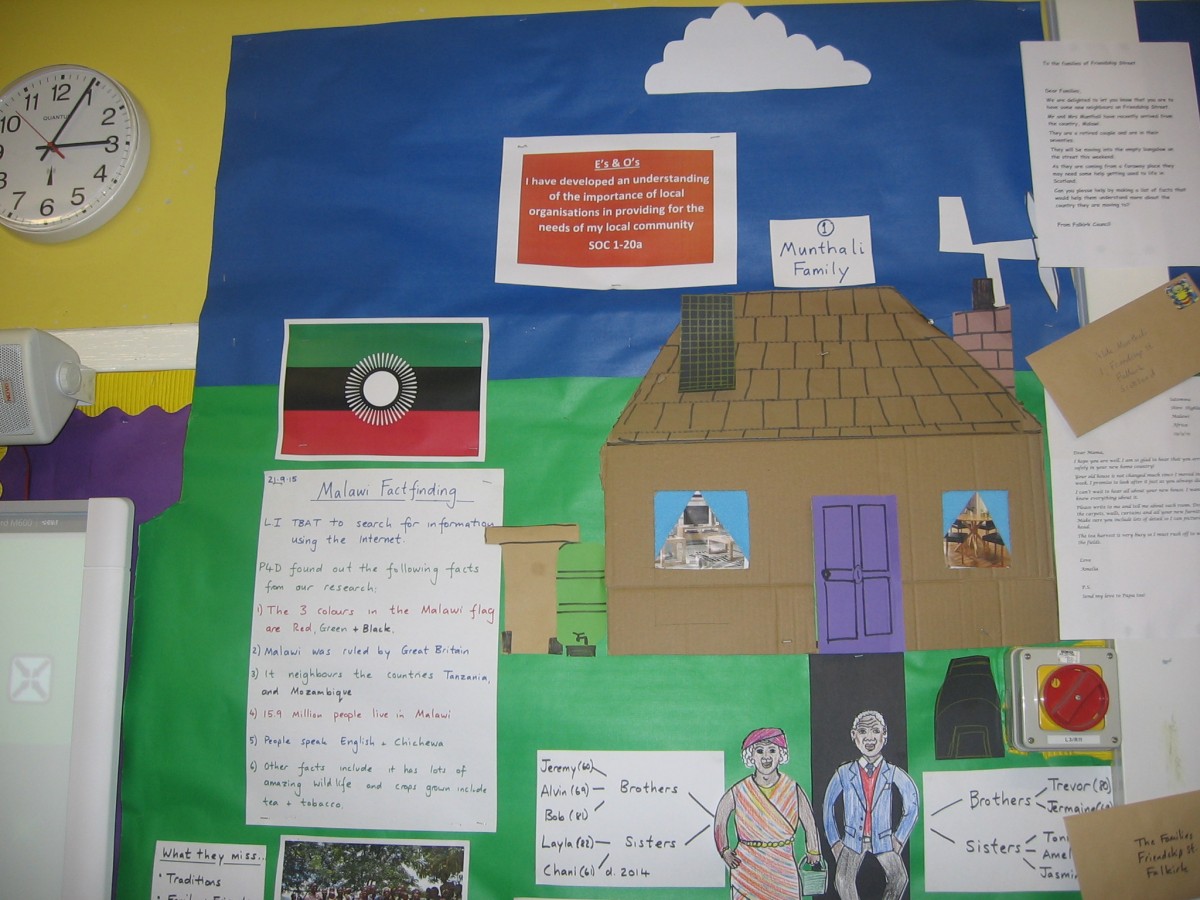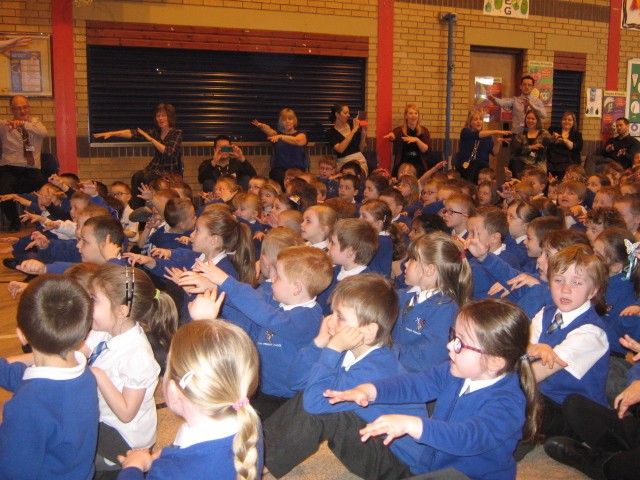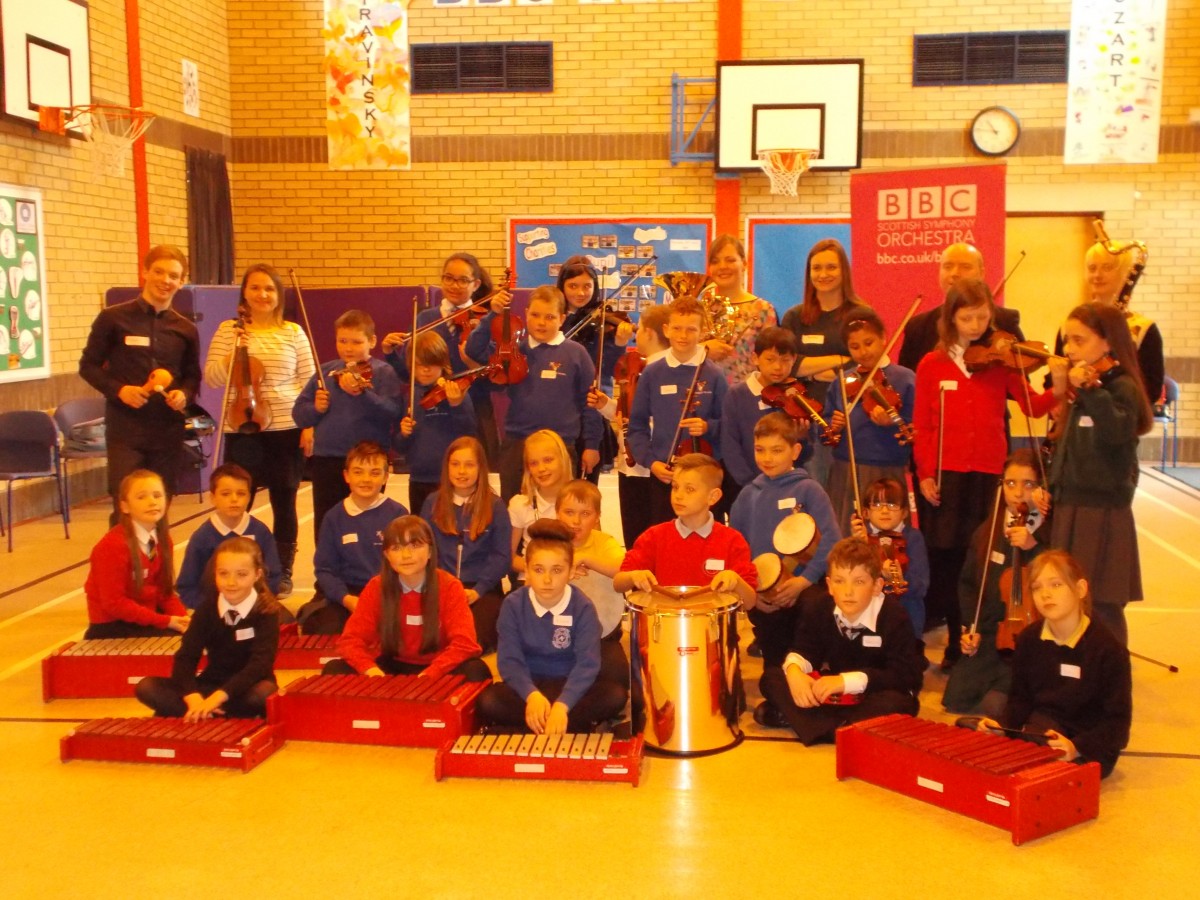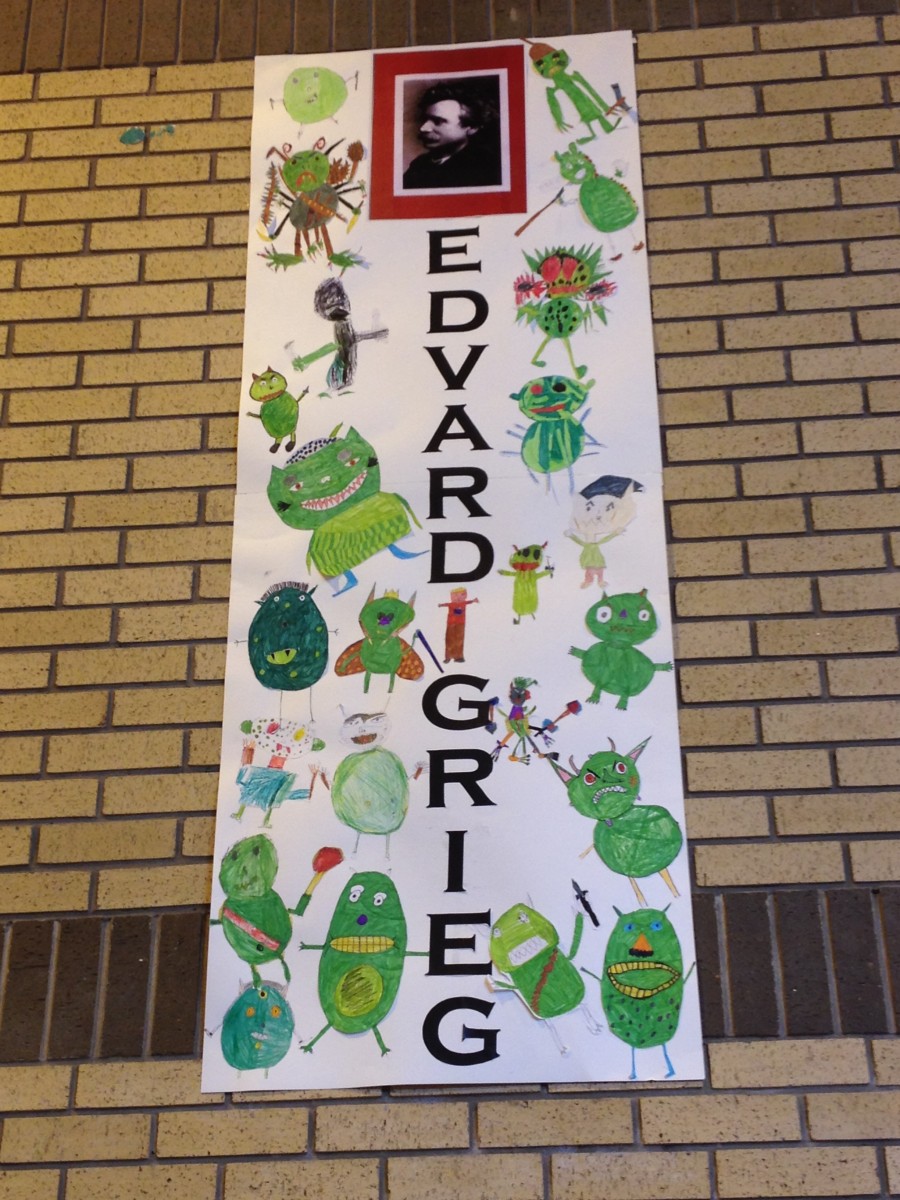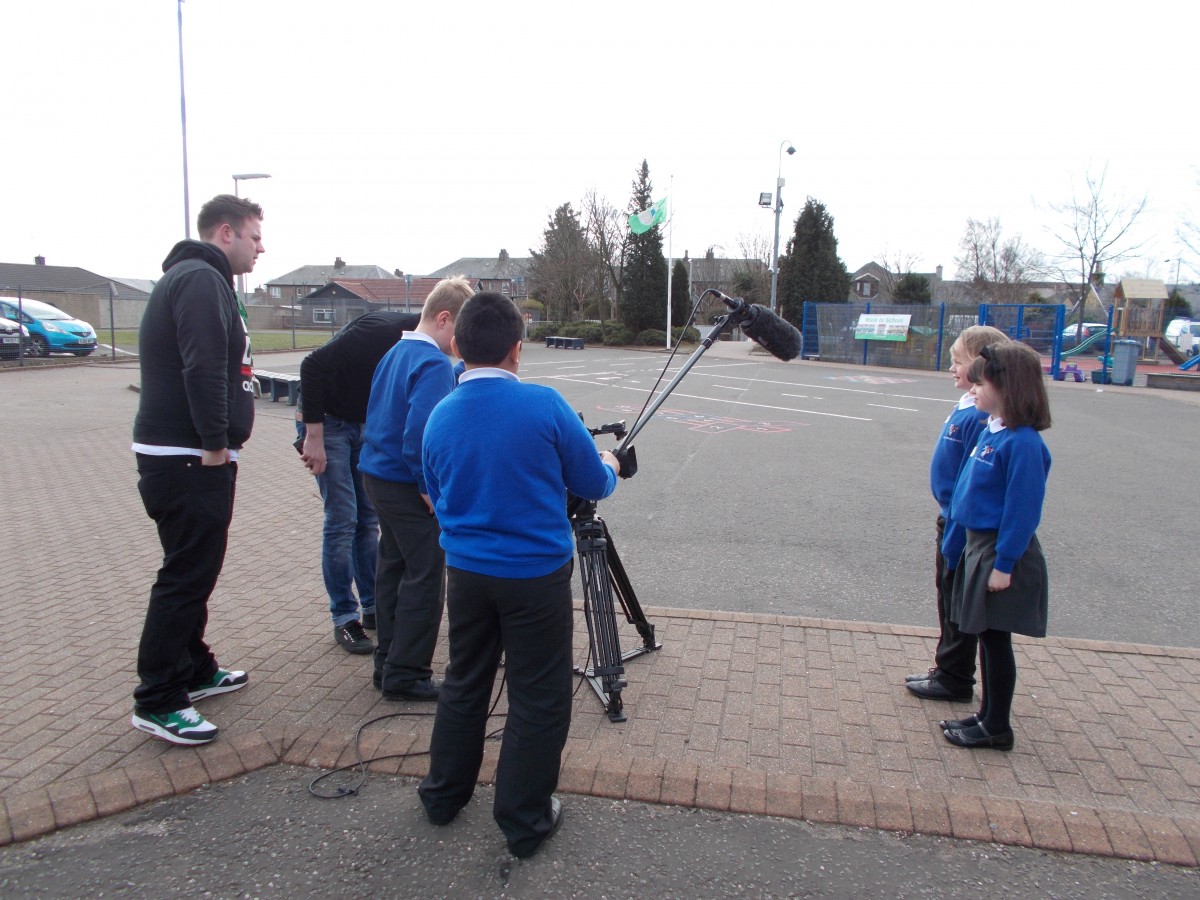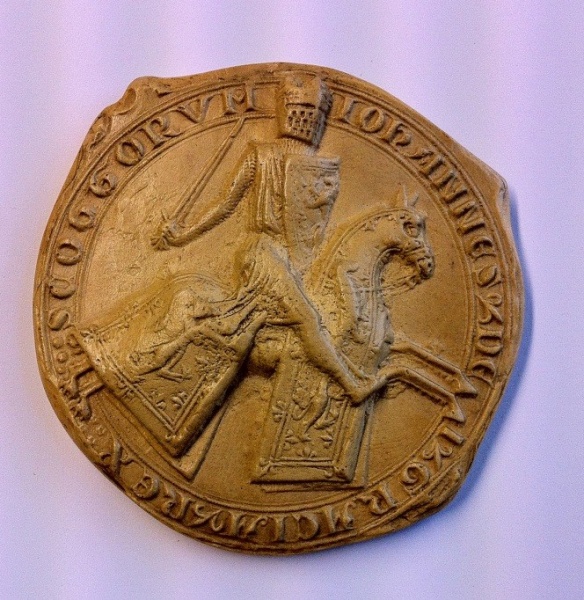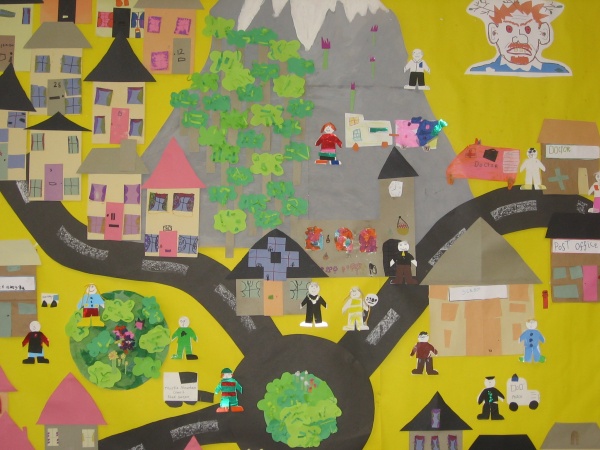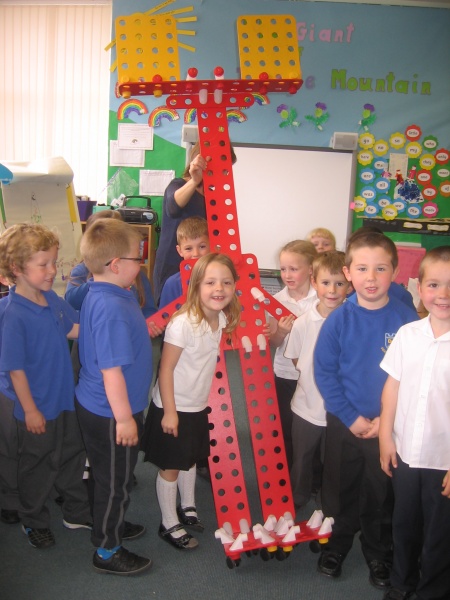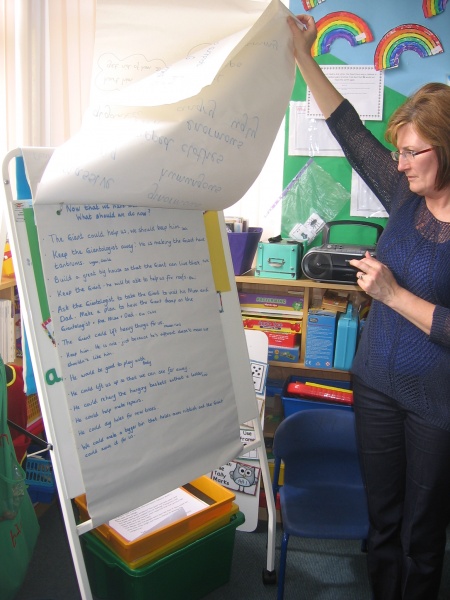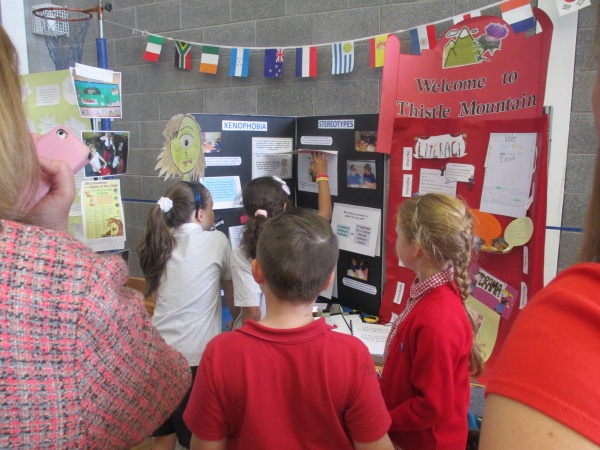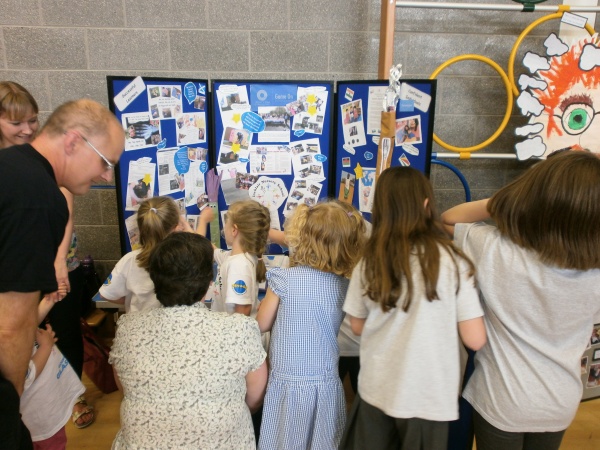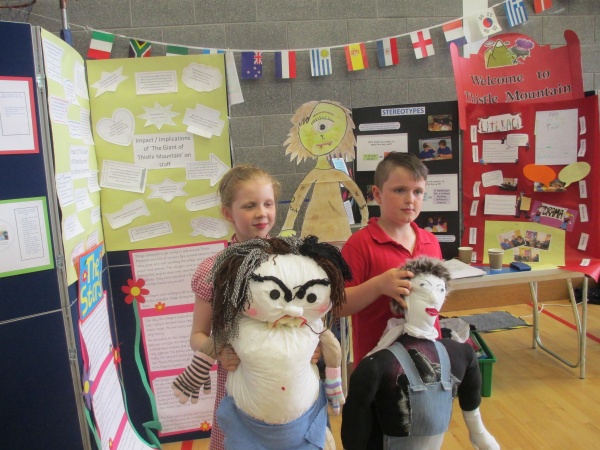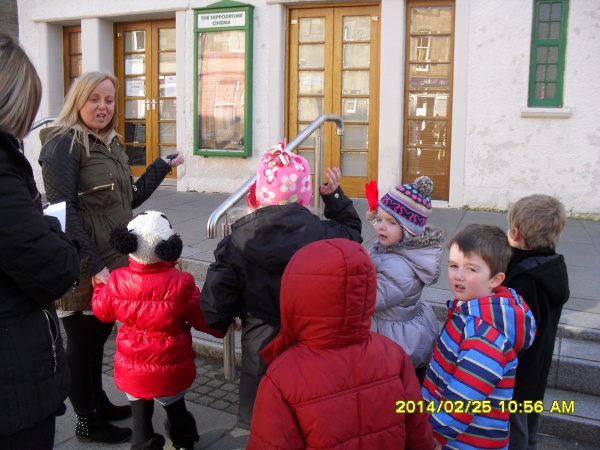 In March 2010, Gill Genoe, head teacher at Bo’ness Public PS, invited Yvonne McBlain, curriculum support teacher to work with her staff towards the following outcomes:
In March 2010, Gill Genoe, head teacher at Bo’ness Public PS, invited Yvonne McBlain, curriculum support teacher to work with her staff towards the following outcomes:
- All pupils in school will gain insight, knowledge and understanding of their local environment and the community they live in.
- All pupils will have opportunities to take learning outdoors linked to their topic.
- Members of the local community will be invited into school to share their experiences and expertise.
Yvonne visited in late February 2014 to see how staff have continued to develop interdisciplinary learning linked to their local area context. As can be seen from the above photo of the nursery field trip, early years practitioners have taken the children around the town while developing mapping skills, and gathering prior knowledge of the local area. When the children recognised and were able to name a particular building or place, they took a photo of “their” place, and EY staff recorded what they said. Click here to look at one of the mind maps which informed this nursery planning.
Primary 1 and primary 2/1 are developing knowledge & understanding within social studies, & applying a range of literacy & art & design skills. Click here & here to see their Bo’ness Pottery displays, and here to see some of the animal “ornaments” which they have made. Callum in P1 enjoyed “making the animal…I made a hedgehog” best, and Asher in P 2/1 liked “going down the shore to find pottery.” Pupils from Bo’ness Academy have been working alongside these two classes to support learning in their senior courses too.
Primary 2 have only just started learning about the huge role that coal mining used to play in Bo’ness – click here to see the beginnings of their storyline frieze. Their teacher is linking their literacy & social studies knowledge & understanding, while developing pupil ability to interpret a variety of sources, and identify & use persuasive language.
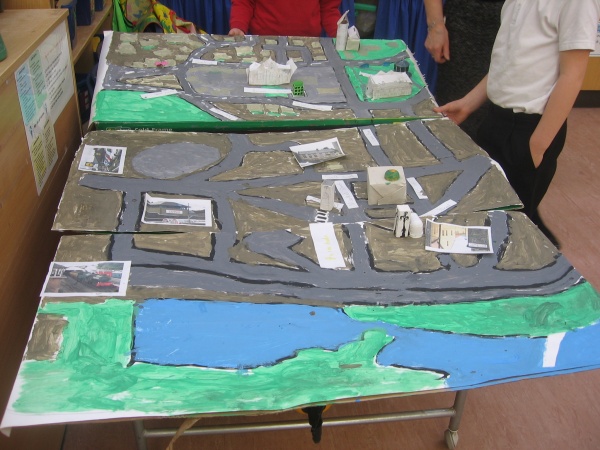 Primary 3/2 are developing their mapping skills & learning about significant local landmarks and buildings. They have worked with a parent helper to make a model/map of the immediate surroundings of the school, click here & here to see some individual pupil development of research & construction skills.
Primary 3/2 are developing their mapping skills & learning about significant local landmarks and buildings. They have worked with a parent helper to make a model/map of the immediate surroundings of the school, click here & here to see some individual pupil development of research & construction skills.
Primary 3 are using the storyline approach to link learning in social studies, RME & Numeracy. Click here to view their developing storyline frieze & here to see the families of characters the pupils have created to help them understand how Bo’ness harbour & trade was central to the development of the local area.
Primary 4 are working on a rich task collaboration with Friends of Kinneil. Click here & here to see some of their planned layout pages for the new Kinneil House Museum information booklet they are designing. This work enables the pupils to develop their chronological awareness, their understanding of the lives of people in the past, and their mapping skills. All of this work is enriched through direct involvement with partner organisations like Friends of Kinneil.
Primary 5/4 and primary 5 have just started learning about the buildings of local architect Matthew Steele. They will take walking tours of Bo’ness to study the variety of buildings designed by this architect and will both focus on the Hippodrome which is an historic local cinema and one of Falkirk’s main tourist attractions. While developing their knowledge, both classes will consolidate their HWB risk management skills during learning outside the classroom. They will also apply & progress their grid reference, and reading for information capabilities. P5/4 will focus specifically on the Hippodrome connection and consolidate their higher order reading skills using films as texts. P5 will make a comparative study betweeen the architectural style of Matthew Steele & other buildings of the period.
Click http://www.boness.falkirk.sch.uk/ to view the primary 6 blog which documents how they are linking their local area study to their studies for the SEPA Sustainability Award. P6 pupils will therefore develop knowledge of the environmental impact of the way Bo’ness people live, but will also extend their ability to form and express reasoned points of view, & be able to apply a range of map reading skills.
Primary 7 are developing their understanding of the history, heritage & culture of Bo’ness by studying local graveyards. By treating the information gathered during their field trips, including what they find on the gravestones, as primary sources, pupils are encouraged to interpret a range of texts very deeply. Their information handling and comprehension skills are further developed when using the national census and other official sources to build up their own interpretation of a typical Bo’ness family in the past. Click here to view an example of pupil work from the 1911 census. Through this and other work, they will develop their ability to analyse information and synthesise it through elements of storyline.
The local area context has proven to be a rich, valuable and sustainable context for learning which is open to a range of interdisciplinary connections across the curriculum. Teachers have developed the initial concept with confidence and creativity to enhance the knowledge, skills and understanding of their pupils and involve parents, grandparents and members of the local community very effectively. Pupils now show interest and pride in their local area and classes now sometimes meet and share their learning while out on their various field trips.
![WP_20160318_005[1]](https://blogs.glowscotland.org.uk/fa/public/IDLCentral/uploads/sites/1992/2016/03/WP_20160318_0051.jpg) On Friday 18th March, Bartek and Scott in primary 5 at Oxgang School, told Mrs McBlain all about the imaginary Infinitree crop which they invented. This is a very special crop which is a blend of chocolate cane and a tree. The tree has leaves which can be crushed to give chocolate oil and then the leftover leaves can be made into chocolate paper, AND the chocolate canes can be crushed to make chocolate powder!!
On Friday 18th March, Bartek and Scott in primary 5 at Oxgang School, told Mrs McBlain all about the imaginary Infinitree crop which they invented. This is a very special crop which is a blend of chocolate cane and a tree. The tree has leaves which can be crushed to give chocolate oil and then the leftover leaves can be made into chocolate paper, AND the chocolate canes can be crushed to make chocolate powder!! ![WP_20160318_006[1]](https://blogs.glowscotland.org.uk/fa/public/IDLCentral/uploads/sites/1992/2016/03/WP_20160318_0061.jpg)


![WP_20160318_007[1]](https://blogs.glowscotland.org.uk/fa/public/IDLCentral/uploads/sites/1992/2016/03/WP_20160318_0071.jpg)
![WP_20160318_009[1]](https://blogs.glowscotland.org.uk/fa/public/IDLCentral/uploads/sites/1992/2016/03/WP_20160318_0091.jpg)
![WP_20160318_002[1]](https://blogs.glowscotland.org.uk/fa/public/IDLCentral/uploads/sites/1992/2016/03/WP_20160318_0021.jpg)
![WP_20160318_001[1]](https://blogs.glowscotland.org.uk/fa/public/IDLCentral/uploads/sites/1992/2016/03/WP_20160318_0011.jpg)
![WP_20160318_003[1]](https://blogs.glowscotland.org.uk/fa/public/IDLCentral/uploads/sites/1992/2016/03/WP_20160318_0031.jpg)
![WP_20160318_014[1]](https://blogs.glowscotland.org.uk/fa/public/IDLCentral/uploads/sites/1992/2016/03/WP_20160318_0141.jpg)
![WP_20160318_011[1]](https://blogs.glowscotland.org.uk/fa/public/IDLCentral/uploads/sites/1992/2016/03/WP_20160318_0111.jpg)
![WP_20160318_010[1]](https://blogs.glowscotland.org.uk/fa/public/IDLCentral/uploads/sites/1992/2016/03/WP_20160318_0101.jpg)
